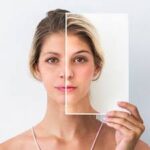Digital Detox: How to Reclaim Your Mental Health in a Hyperconnected World

Meta Description: Feeling overwhelmed by constant notifications, screen time, and digital fatigue? Discover how a digital detox can help you reclaim your mental clarity, reduce anxiety, and live more intentionally.
Introduction: The Age of Overstimulation
We live in an era where smartphones rarely leave our hands, social media feeds are endless, and work emails follow us into bed. While technology offers incredible convenience and connectivity, our constant engagement with screens comes at a cost: our mental health.
“Beat the Pressure: A Comprehensive Guide to Lowering Blood Pressure Naturally.”
Buy book from Gumroad or Paystack
A growing body of research shows that overexposure to digital devices can lead to increased stress, anxiety, depression, sleep disorders, and reduced attention spans. The good news? You don’t need to delete everything and move to the mountains. You just need a digital detox.
A digital detox isn’t about abandoning technology—it’s about creating healthier boundaries to improve focus, relationships, and well-being. Let’s explore how to reclaim your mental health in a hyperconnected world.
What Is a Digital Detox?
A digital detox is a period of time during which a person voluntarily refrains from using digital devices such as smartphones, tablets, laptops, and social media platforms. This intentional break allows your mind and body to rest, recharge, and reconnect with the real world.
Whether it’s for a few hours a day, a weekend, or an entire month, the goal is to reduce digital clutter and restore balance between your online and offline life.
The Mental Health Impact of Digital Overload
😰 Increased Anxiety and Stress
Constant alerts, pings, and messages create a state of hypervigilance in the brain. You’re always “on,” leading to chronic stress. Scrolling through news or doom-scrolling social media can trigger fear, helplessness, and a sense of being overwhelmed.
A 2023 study published in JAMA Psychiatry found a strong correlation between excessive smartphone use and elevated levels of anxiety and stress in adults.
😢 Depression and Loneliness
Paradoxically, while technology connects us, it often deepens loneliness. Social media promotes comparison culture—seeing curated, filtered versions of others’ lives can trigger feelings of inadequacy, envy, and low self-esteem.
💤 Sleep Disruption
Blue light from screens inhibits melatonin production, the hormone that regulates sleep. Late-night scrolling not only delays sleep onset but also reduces sleep quality, affecting mood and energy levels the next day.
🧠 Decreased Focus and Productivity
Digital distractions make it harder to focus on tasks for long periods. Notifications and multitasking reduce cognitive performance and increase the time it takes to complete tasks.
Signs You Need a Digital Detox
Wondering if it’s time for a break? You may need a digital detox if you:
- Feel anxious without your phone.
- Check your phone within minutes of waking up.
- Struggle to focus on tasks without checking social media.
- Experience eye strain, headaches, or poor sleep.
- Feel disconnected from real-life relationships.
- Spend more time online than you intend to.
Benefits of a Digital Detox
🧘♀️ Improved Mental Clarity and Emotional Balance
Reducing digital noise allows your mind to slow down, improving clarity, creativity, and decision-making. Many people report feeling calmer and more in control after detoxing.
😌 Lower Stress and Anxiety
Without the constant barrage of information and stimulation, your nervous system has a chance to regulate and recharge. You feel more grounded and present.
💬 Stronger Relationships
When you’re not glued to your phone, you’re more likely to make eye contact, listen attentively, and connect more deeply with loved ones.
😴 Better Sleep and Energy
Disconnecting from screens before bed can improve sleep quality, which in turn boosts mood, focus, and productivity the next day.
How to Do a Digital Detox (Without Going Off-Grid)
A digital detox doesn’t mean abandoning technology. It means using it intentionally. Here’s how to start:
1. Define Your Why
Ask yourself: Why do I want to detox? Is it for better sleep, more focus, less stress, or more time for hobbies? Clarifying your intention helps you stay committed.
2. Start Small
You don’t have to go cold turkey. Try:
- Turning off notifications.
- No screens after 9 p.m.
- A social media-free Sunday.
- A 1-hour “tech-free zone” daily.
3. Schedule Screen-Free Time
Block out time in your day for offline activities: walking, journaling, reading, meditating, cooking, or spending time with loved ones.
4. Use Tech to Limit Tech
Ironically, you can use apps like Forest, Freedom, or Moment to track usage and block distractions.
5. Create No-Tech Zones
Designate places in your home where devices aren’t allowed, like the bedroom, bathroom, or dining table. This encourages mindful engagement with your surroundings.
6. Be Mindful, Not Rigid
The goal isn’t perfection. If you slip up, simply notice your behavior without judgment and start again. It’s about progress, not punishment.
Offline Activities That Rejuvenate the Mind
Reclaim your time with activities that nourish your soul:
- Go for nature walks
- Practice yoga or meditation
- Read physical books
- Start a gratitude journal
- Learn a new hobby (e.g., painting, music, gardening)
- Cook a new recipe
- Volunteer in your community
Digital Minimalism: A Long-Term Solution
A detox is a great start—but for sustainable change, consider digital minimalism. Coined by author Cal Newport, it means intentionally choosing how and when to use technology to align with your values and goals.
Ask: Is this digital activity serving my highest good?
Real-Life Story: Mark’s 7-Day Detox Changed Everything
Mark, a 29-year-old marketing executive, noticed he was checking his phone over 150 times a day. His sleep was poor, and his anxiety was worsening. He committed to a 7-day digital detox—no social media, limited email, and no screens after 8 p.m.
At the end of the week, he felt:
- Calmer and more focused
- Less anxious about work
- More connected to his partner
- Re-energized to pursue creative hobbies
Mark now maintains a “tech-free hour” daily and no social media on weekends.
Conclusion: Reclaim Your Peace in a Noisy World
Technology isn’t the enemy—but mindless use is. A digital detox empowers you to take back control, reduce stress, and live more intentionally. Even small changes—like turning off notifications or taking breaks from screens—can lead to big mental health wins.
In a world that’s always online, choosing to disconnect is one of the most powerful acts of self-care you can make.
SEO Tags & Keywords:
- Digital detox tips
- Benefits of a digital detox
- How to reduce screen time
- Tech addiction and mental health
- Social media anxiety
- Improve focus naturally
- Digital wellbeing
- Offline activities for mental health
- How to reset your mind
💔 “She said she loved me. And for fifty-two years, I believed her.” 💔
Buy The Book "The Longest Lie: A Husband’s Journey Through Love, Betrayal, and Redemption" From Gumroad






